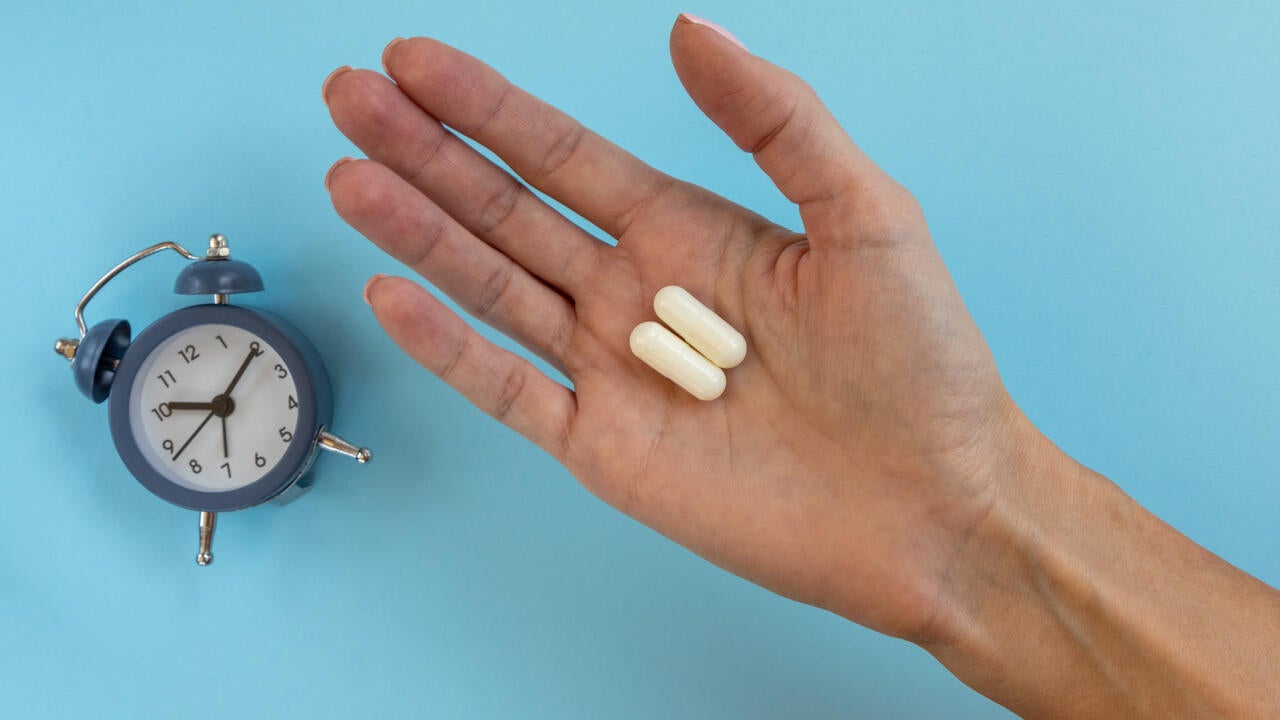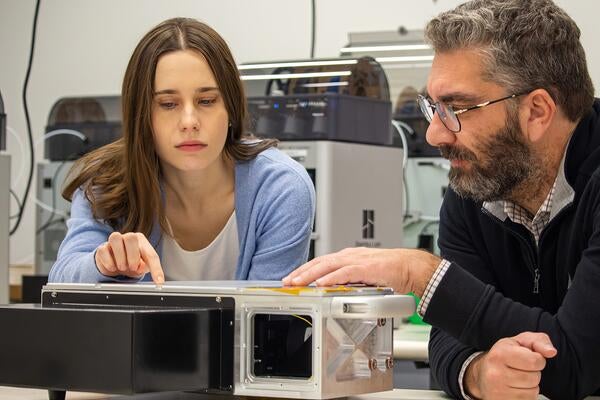
Time of day boosts effectiveness of anti-aging supplements
Using a comprehensive mathematical model researchers at the University of Waterloo found that the best time of day for someone to take anti-aging supplements depends on their age.

Using a comprehensive mathematical model researchers at the University of Waterloo found that the best time of day for someone to take anti-aging supplements depends on their age.
By Media RelationsAging is a disease that can be fought with the appropriate combinations of supplements and behaviours, according to new research from the University of Waterloo.
Using a comprehensive mathematical model, the researchers also found that the best time of day for someone to take these supplements depends on their age. Some anti-aging supplements should be taken by young people at night, while older people should take it midday for the greatest effectiveness.
The two classes of drugs the researchers modelled are nicotinamide mononucleotide (NMN) and Resveratrol, which have been the subject of increased interest in recent years after reports emerged on their benefits on metabolism and increased lifespan of various organisms.
A debate over whether to classify aging as a disease has been ongoing for decades, with the vast majority in the field of aging research now classifying it as such. As recently as 2015, a team of international scientists authored a paper calling it “time to classify biological aging as a disease”—and the World Health Organization has made moves that bring it closer to that definition.
“It's really important to try and change this wrong paradigm that aging is not treatable,” said Mehrshad Sadria, a PhD student in Waterloo’s Department of Applied Mathematics. “We shouldn’t think like 30 years ago when we thought that once a person gets into their 70s or 80s, they must be lethargic and ailing.
The clear association of aging with various serious diseases is a stronger motivator for better understanding aging, Sadria said. Recognizing aging as a disease can encourage investment and promote research efforts in identifying therapies that can delay the aging process.
“We can take these drugs that can extend our lifespan and improve our health. This study is the first step in understanding when is the best time for young people and older folks to take these supplements.”
Sadria and Anita Layton, professor of Applied Mathematics, Computer Science, Pharmacy and Biology at Waterloo, developed a mathematical model that simulates the circadian clock and metabolism in the mouse liver. The model is age-specific and can simulate liver function in a young mouse or an aged mouse.
They found that a young person, for example, should take NMN six hours after they wake up to achieve the highest efficiency. On the other hand, young individuals should take Resveratrol at night while older people should take it midday for the greatest effectiveness.
“The time you eat, what you eat, the time you sleep and the time you exercise are all factors that can affect your body, how you age and how you live,” Layton said. “People should be mindful of when they eat and ensure that it coincides with other things in their environment that impact their sleep/wake cycle or body clock, such as exposure to light because if not, it could cause conflict within the body.”
The study, Modeling the Effect of Ageing on the Circadian Clock and Metabolism: Implications on Timing of Medication, was recently published in the journal iScience.

A car’s exhaust pipe emits black carbon. This sooty form of pollution alters the “light environment” beneath the snow, affecting plant growth. (Kmatija/Getty Images)
Read more
Research into light and snow interactions provides new insights into how pollution can affect vegetation growth and impact ecosystems

Read more
Phantom Photonics’ quantum remote sensing technology offers precision for industries operating in extreme environments

Read more
How machine learning empowers collaboration between computer science, math and medical research
The University of Waterloo acknowledges that much of our work takes place on the traditional territory of the Neutral, Anishinaabeg, and Haudenosaunee peoples. Our main campus is situated on the Haldimand Tract, the land granted to the Six Nations that includes six miles on each side of the Grand River. Our active work toward reconciliation takes place across our campuses through research, learning, teaching, and community building, and is co-ordinated within the Office of Indigenous Relations.